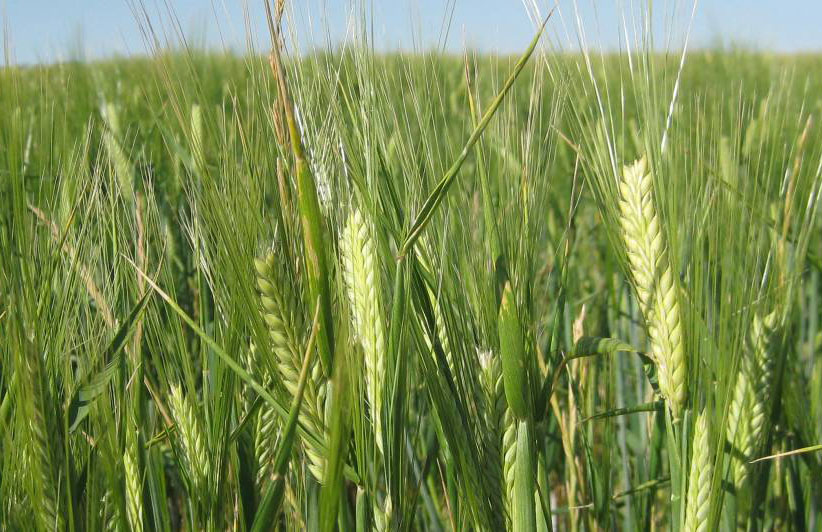
Increasing soil acidity is a serious problem for many agricultural soils in Western Australia. Low soil pH causes well-documented effects of toxicity and reduced yield for many crops. DAFWA reports indicate that soil acidification is a significant problem in agricultural areas and that this situation is deteriorating. Cost to agriculture in Western Australia in reduced yields is estimated at $500M per annum. Barriers to effective treatment have been identified from surveys, as both the cost and the time taken to recover the costs of treatment.
The standard method to treat this low soil pH is to add lime sands; this is a long-term treatment with general recommendations for >2T/ha. Even, with this application rate there is no significant benefit in yields for 2 years, and an annual increase of 12% increase in yield after that. There are strong indications that Scott’s Watheroo Dolomite’s dolomitic lime has a rapid beneficial effect on soil pH when applied to agricultural lands. The rapid response in soil pH with dolomitic lime is due to a rapid dissolution of fine lime particles. The size distribution of Scott’s Watheroo Dolomite’s dolomitic lime shows that >50 % will be dispersed into fine silt size fractions with water. Silt and clay size particles are highly reactive in the soil environment because of the exceptionally large surface area available for chemical reactions. A fine sand has a surface area of 0.1 m /g, bentonites have a surface area of 300-750 m /g. The composition of this Dolomitic Lime is unique to Scott’s Watheroo Dolomite as it contains high levels of silt and clay sized reactive particles.
Scott’s Watheroo Dolomite’s dolomitic lime analysis will differ with two sieving techniques. The standard 3 mm product; was sieved dry and also sieved wet to obtain the fractions and size distribution. See Table 1.
Table 1. Size distributions as % of total sample of 3 mm screened dolomitic lime
| Size range (mm) | Dolomite dry screened | Dolomite wet screened |
| <0.063mm | 0.9 | 50.1 |
| 0.063-0.125 mm | 4.5 | 6.3 |
| 0.125-0.25 mm | 25.6 | 8.0 |
| 0.25-0.5 mm | 19.2 | 12.1 |
| 0.5-1 mm | 16.2 | 8.0 |
| 1-2 mm | 16.2 | 6.3 |
| 2-3 mm | 17.0 | 9.4 |
The standard Code of Practice protocols for analysis of lime sands specify a dry sieving method for measurement of the particle size distribution. With this method Scott’s Watheroo Dolomite’s dolomitic lime size structure is comparable to lime sands. With the alternative laboratory wet sieving protocol, the size distribution of coastal lime sand varies little. However, Scott’s Watheroo Dolomite’s dolomitic lime granules breakdown in water giving the size distribution as shown in Table 1 and Figure 1.
Figure 1. Comparison of dry screening and wet screening for the dolomitic lime.

The 3mm dry screened dolomitic lime product has most of the fine fraction tied up in relatively large aggregates. This has positive benefits with regard to logistics of application, handling and minimal loss from wind. However in the soil environment once these aggregates are wetted they readily disperse into the silt size particles that are reactive and will dissolve to rapidly start neutralising the soil pH. Lime sands do not disperse into fine fractions like Scott’s Watheroo Dolomite’s dolomitic lime.
There are many reports that document the improved efficacy and rapid rate of pH change with reduced particle size in lime sand soil treatments. These studies show that very fine, size fractions are most effective at rapidly neutralising acidic soils. The common acidic soil neutralising treatments use relatively coarse lime sand products because these are available, are easier to apply and cheaper than processed, fine lime products.
The product is known for rapid and effective neutralising in acidic soils, with a neutralising value of 75 – 83 % and magnesium content of 7.2 – 8.8 % critical for plant growth.
Scott’s Watheroo Dolomite is part of the Watheroo Minerals Group that produces high grade Calcium Bentonite Clay for the WA Garden and Horticultural sector. Located north of Watheroo on the Midland Road, they are a premier supplier of clay based products.